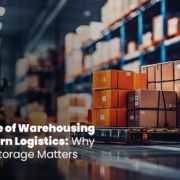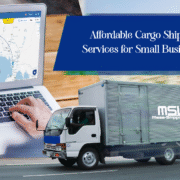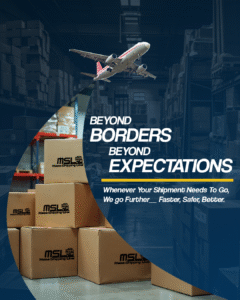Warehousing Solutions for Every Logistics Company
Global trade is growing rapidly, and every business needs a dependable logistics structure to keep operations smooth. In this fast-paced environment, warehousing has become one of the most essential parts of supply chain management. For companies that want reliability, speed, and control, a professional logistics company like Mass Shipping provides complete warehousing solutions that improve performance and reduce supply chain challenges.
Modern warehousing is no longer limited to storing goods. In fact, it now plays a central role in improving inventory flow, enhancing delivery speed, and supporting overall customer satisfaction. Moreover, as the logistics landscape continues to evolve, the need for smart, well-managed storage becomes even more important. In addition, Mass Shipping understands that warehousing is the backbone of logistics and has therefore developed systems that support efficient storage, packaging, and distribution. Consequently, businesses benefit from smoother operations and stronger supply chain performance. Furthermore, by leveraging these solutions, companies can reduce errors, optimize workflows, and, ultimately, improve both productivity and customer satisfaction.
1. Why Warehousing Matters in Today’s Logistics System
Warehousing helps businesses manage stock efficiently and maintain smooth distribution processes. Without organized storage, companies face product shortages, delays, and extra costs. Mass Shipping offers structured warehousing solutions designed to keep stock secure and constantly available.
A well-managed warehouse allows businesses to:
-
Maintain optimum inventory levels
-
Store goods safely
-
Improve order accuracy
-
Keep the supply chain running smoothly
Mass Shipping integrates warehouse management with transportation, ensuring products move quickly between storage and delivery points.
2. Smart Inventory Management for Smooth Operations
Inventory management is one of the strongest pillars of successful warehousing. Mass Shipping uses systematic stock control methods to help businesses reduce wastage and optimize storage space. Through digital systems and regular monitoring, stock levels stay accurate, helping companies plan better.
Modern warehousing solutions include:
-
Real-time tracking
-
Automated stock reports
-
Demand forecasting
-
Proper shelf management
With these systems in place, businesses benefit from transparency and accurate planning, which ultimately reduces errors.
3. Faster Order Processing and Better Customer Experience
Customer satisfaction depends heavily on delivery speed and product accuracy. Mass Shipping focuses on efficient picking, sorting, packing, and dispatching processes. This ensures that products move out quickly and correctly.
Warehousing solutions provided by Mass Shipping help businesses ensure:
-
Quick order fulfillment
-
Reduced returns due to mistakes
-
Higher customer satisfaction
-
Smooth delivery timelines
These improvements directly help businesses grow their reputation and retain customers.
4. Strategic Warehouse Locations Reduce Operational Costs
Warehouse location plays a big role in reducing transport time and cost. Therefore, Mass Shipping strategically places its warehouse facilities near major transportation routes, business hubs, and market centers.
The benefits of strategic warehouse locations include:
-
Shorter delivery routes
-
Lower transportation costs
-
Faster dispatch
-
Improved accessibility
Consequently, because of these advantages, businesses partnering with Mass Shipping experience smoother supply movement and better efficiency. Furthermore, they gain stronger control over their logistics operations, which in turn enhances decision-making. In addition, this improved oversight leads to greater operational consistency; moreover, it allows for quicker problem-solving and, ultimately, significantly improves overall performance. As a result, companies can achieve higher productivity, while simultaneously strengthening customer satisfaction and long-term growth. Additionally, these advantages help businesses respond proactively to changing market conditions.
5. Flexibility to Handle Changing Market Demands
Market demand can change quickly due to seasonal sales, sudden bulk orders, or product shortages. As a result, stock levels may become unstable and, consequently, create challenges for businesses. Nevertheless, with proper planning and strategic management, these disruptions can be mitigated effectively. Moreover, Mass Shipping’s warehousing solutions offer the flexibility to adjust inventory and, therefore, handle these fluctuations smoothly. In addition, this adaptability not only supports operational efficiency but also ensures that businesses maintain consistent supply chain performance even during unpredictable market shifts. Furthermore, by leveraging these solutions, companies can respond proactively to sudden changes, ultimately improving resilience and customer satisfaction.
Key benefits include:
-
The ability to store additional stock during peak seasons additionally allows businesses to meet increased demand efficiently. In addition, it helps prevent stockouts and, as a result, ensures timely order fulfillment. Consequently, companies can maintain customer satisfaction even during high-demand periods.
-
Space for emergency supplies
-
Easy management of slow-moving items
Overall, this flexibility protects businesses from supply chain disruptions and keeps operations consistent.
6. Value-Added Services Improve Efficiency
Mass Shipping doesn’t just offer storage. In fact, it provides value-added services inside the warehouse to save time and reduce workload for clients.
These services include:
-
Repackaging
-
Sorting
-
Quality checking
-
Barcoding
-
Custom labeling
-
Kitting and bundling
As a result, these additional services help businesses deliver ready-to-sell products without extra handling stages, thereby improving overall efficiency.
7. Technology-Driven Warehousing for Accuracy and Speed
Technology has transformed warehousing and made it more accurate, transparent, and productive. Consequently, Mass Shipping uses modern systems to support real-time tracking and automated stock handling.
Technologies include:
-
Warehouse Management Systems (WMS)
-
RFID/barcode scanning
-
Automated inventory tracking
-
Digital reporting
-
Updated logistics software
Therefore, by using these tools, Mass Shipping provides complete visibility over stock and thus improves accuracy in every step of the supply chain.
8. Safety and Security of Stored Goods
Mass Shipping follows strong security measures to keep goods protected. For instance, warehouses are equipped with security cameras, controlled access points, and proper ventilation systems.
Security features include:
-
24/7 monitoring
-
Climate-controlled storage
-
Anti-theft protection
-
Fire safety systems
As a result, companies can store even sensitive and high-value items with confidence.
9. Cost Reduction and Business Growth
One of the biggest advantages of professional warehousing is cost saving. Consequently, with Mass Shipping, businesses reduce several hidden expenses like damage costs, manual errors, transportation delays, and extra labor.
Cost benefits include:
-
Reduced transportation expenses
-
Lower risk of product damage
-
Time-saving automation
-
Optimized inventory levels
Ultimately, by cutting unnecessary costs, businesses can focus more on growth and customer satisfaction. Additionally, this enables companies to reinvest in operations, expand services, and strengthen their market position.
10. Conclusion: Warehousing Is the Heart of Modern Logistics
As global trade expands, efficient warehousing becomes essential. Mass Shipping plays a key role in helping businesses achieve smooth logistics operations. With advanced warehousing solutions, strategic locations, real-time tracking, and value-added services, Mass Shipping ensures that products are stored safely, managed smartly, and delivered on time.
For companies searching for reliable logistics support, Mass Shipping offers complete warehousing solutions that fit modern business needs and help maintain supply chain excellence.

































